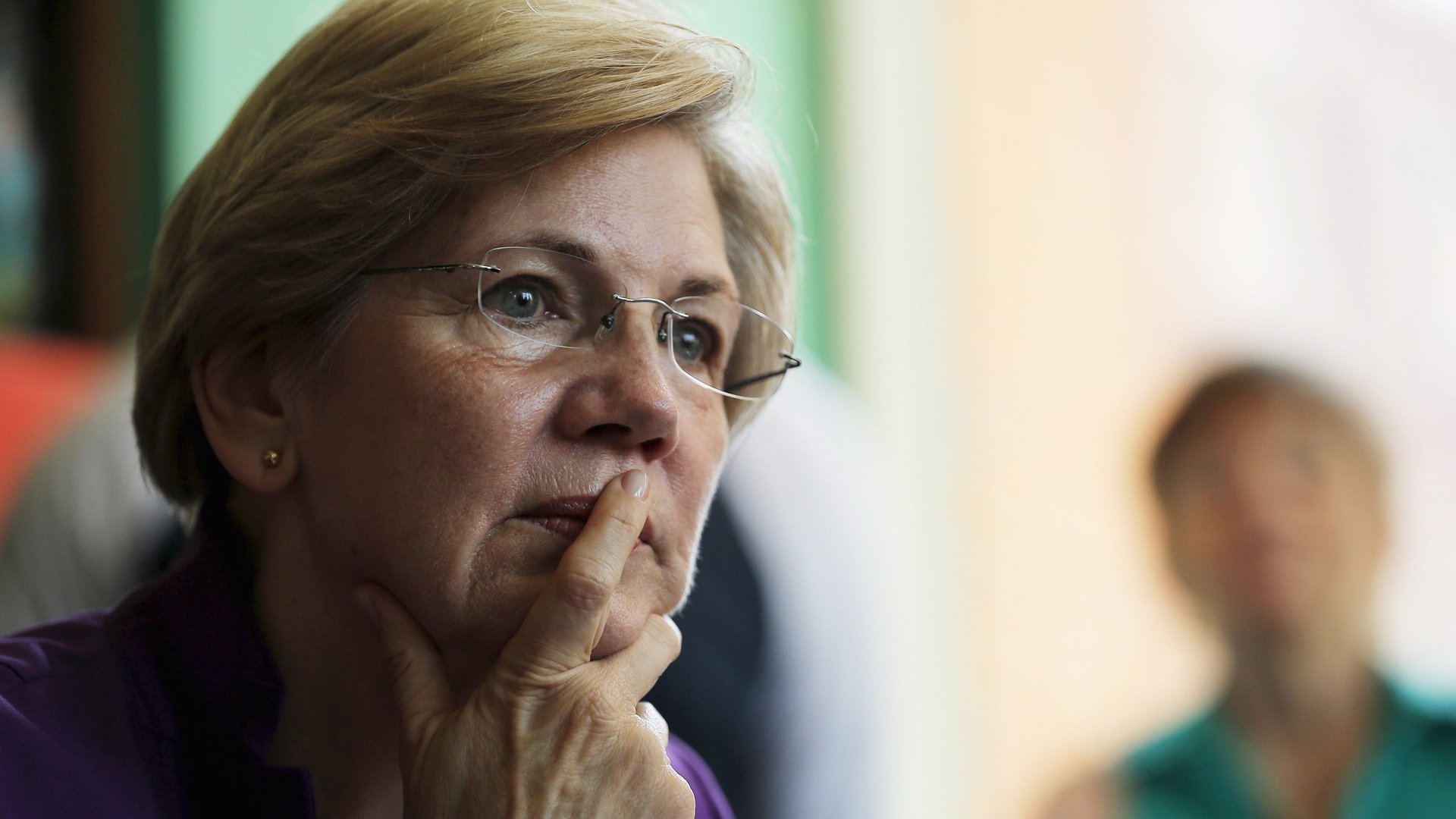In an election dominated by misogyny, a Clinton-Warren ticket might just work
Conventional wisdom holds that the two candidates on a presidential ticket should balance one another out. A young senator pairs well with a seasoned veteran. A longtime politician might look for a running mate who can carry a swing state or coveted demographic; in the 21st century, a white guy might even choose a minority or a woman.


Conventional wisdom holds that the two candidates on a presidential ticket should balance one another out. A young senator pairs well with a seasoned veteran. A longtime politician might look for a running mate who can carry a swing state or coveted demographic; in the 21st century, a white guy might even choose a minority or a woman.
But let’s not get too crazy: you won’t see two minorities on a ticket. And definitely not two women. Even Barack Obama, the candidate of change, opted for an older white guy as his vice president.
What if 2016 is the year that Hillary Clinton starts breaking the rules?
As recently as a year ago, the idea that Clinton might choose another woman as her vice-presidential pick seemed to be a non-starter. Americans have a hard enough time voting for a ticket with one woman on it; two would be overkill, and a death wish for Clinton’s campaign.
But with Donald Trump as the presumptive Republican nominee, the view looks rather different. New York Magazine now reports that influential advisers in the Clinton campaign want Elizabeth Warren to be Hillary’s running mate.
“She’s been a totally good soldier,” one adviser said, referring to Warren’s spirited Twitter attacks against Trump. “You could say she’s already been auditioning for it a little bit.”
“You want a running mate who can take the fight to the other side with relish,” said a Clinton veteran. “Geography doesn’t matter, but attitude and talent and energy and bringing excitement to the campaign, Senator Warren does all that.”
In many ways, a Warren pick makes perfect sense. She’s widely respected and admired for her anti-Wall Street crusades, and she is already playing a lead role in the Democratic fight against Trump on social media. As a hero to many of the same people who currently support Clinton’s Democratic rival Bernie Sanders, her presence in the Clinton campaign could help unite the party. And she would bring extra firepower to what is sure to be a brutal general election.
There’s just one problem: She’s a woman. Is a presidential ticket big enough for two of them?
For voters who are already uneasy about the prospect of a woman in the White House (hint: mostly white men), a Warren addition might be the final straw. They’d go Trump for good. But it seems unlikely that those who pine for the days of Mad Men were going to vote for Clinton anyway. And some argue that Clinton doesn’t really need more white men, as they’re a declining portion of the electorate.
No doubt a Clinton-Warren ticket would prompt Trump to double-down on his “woman’s card” comments, claiming that both candidates have relied on their gender to ascend to power. This argument would elicit more accusations of sexism from Democrats—all of which is to say that an all-female ticket promises to make an election that is already extremely attuned to issues of gender even more so.
If Trump nominates a male vice president, as he presumably will, then the US would get a hugely symbolic showdown of boys-versus-girls: patriarchy versus matriarchy, the old guard versus the new. And if Trump nominates a woman in a ploy to revamp his sexist image and steal the woman’s card back, then we would have the mind-boggling prospect of three women on November’s ballots.
In 2008, Clinton tried to avoid making her gender a topic of discussion, fearing that doing so might alienate male voters or lead people to accuse her of making the presidential race about identity rather than ideas. But it is clear by now that there will be no shying away from talk of the woman’s card in this election. Why not up the ante? She may be more successful by taking this particular fight all the way and nominating another respected, successful woman rather than compromising with a “balanced” ticket.
When Ruth Bader Ginsburg is asked, “When will there be enough women on the Supreme Court?” she likes to respond, “When there are nine.” After all, for most of US history, men have made up the entirety of the government’s judicial branch. America’s presidential nominees have been almost exclusively men too. If we’re going to nominate one woman, why not go for broke? It’s nonsensical to think two women would be too much.